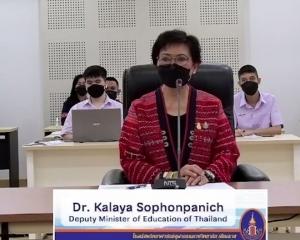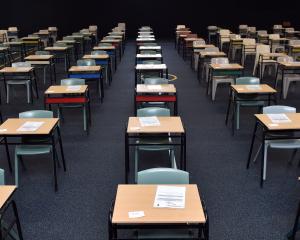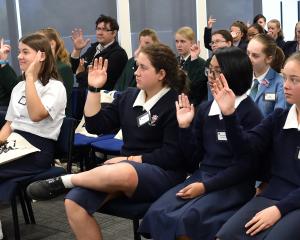The Education Amendment Bill 2012 has passed its third reading in Parliament, amending the Education Act 1989, and now gives appropriate school staff the power to search pupils and their bags, and seize property.
While Otago Secondary Principals' Association president Rick Geerlofs was delighted with the new powers, the downside was the legislation also allowed for the establishment of partnership (charter) schools, which principals did not support.
Teachers or authorised staff members are now able to ask pupils to hand over any item, including an electronic device, which is likely to endanger the safety of any person or detrimentally affect the learning environment.
They will be able to confiscate items for a reasonable period, and either return or dispose of them, as appropriate.
Where a pupil refuses to hand over a harmful item which is concealed in clothing or a bag, authorised staff can ask the pupil to remove outer clothing, head covering, gloves, footwear or socks for searching, or surrender their bag for searching.
Schools will also be able to engage contractors to conduct searches of school property using dogs.
The new powers come into force at the start of 2014.
Education Minister Hekia Parata said the law provided a clear framework to ensure schools maintained a safe learning environment at all times.
''Our teachers will now be guided by law when they encounter a situation where they may require a student to hand over potentially harmful material.
''This Bill considers the safety of our teachers and of the students,'' she said.
While Mr Geerlofs was pleased processes had been put in place to support schools with the difficult issue of search and seizure, he said state and integrated schools were still very concerned with the introduction of partnership schools, and the flexibility they have been granted for staffing, funding and targets.
''The research on charter/partnership schools is divided, with some charter/partnership schools overseas producing moderately positive outcomes for pupils, where some sustained good results have been seen.
"But in other places they have been less successful and seem to set back the achievement of ethnic minority group pupils. The picture for special education pupils is not so positive.''
Mr Geerlofs said OSPA was not convinced the move to partnership schools would be better for pupils.
''Were state and integrated schools granted the same flexibility, we might bring about the improved outcomes desired.''
Otago Primary Principals' Association president Whetu Cormick described the legislation as a kick in the guts for one of the highest quality public education systems in the world.
He said more than 80% of New Zealand pupils sat at the top of the world for academic achievement.
''Why would you want to put all that under threat?''
Advertisement












